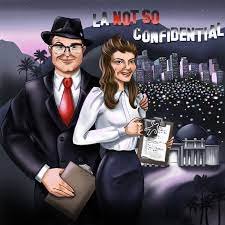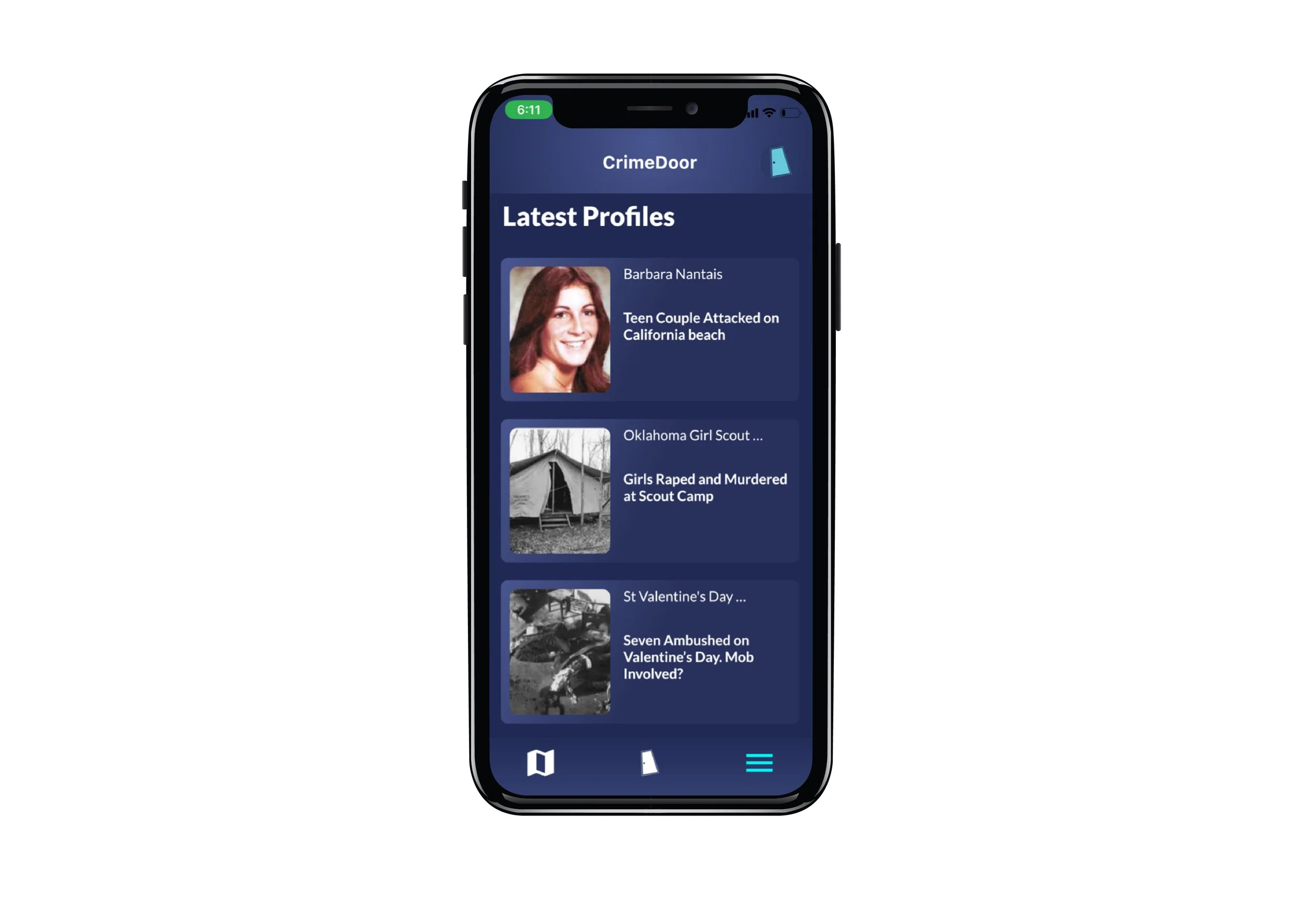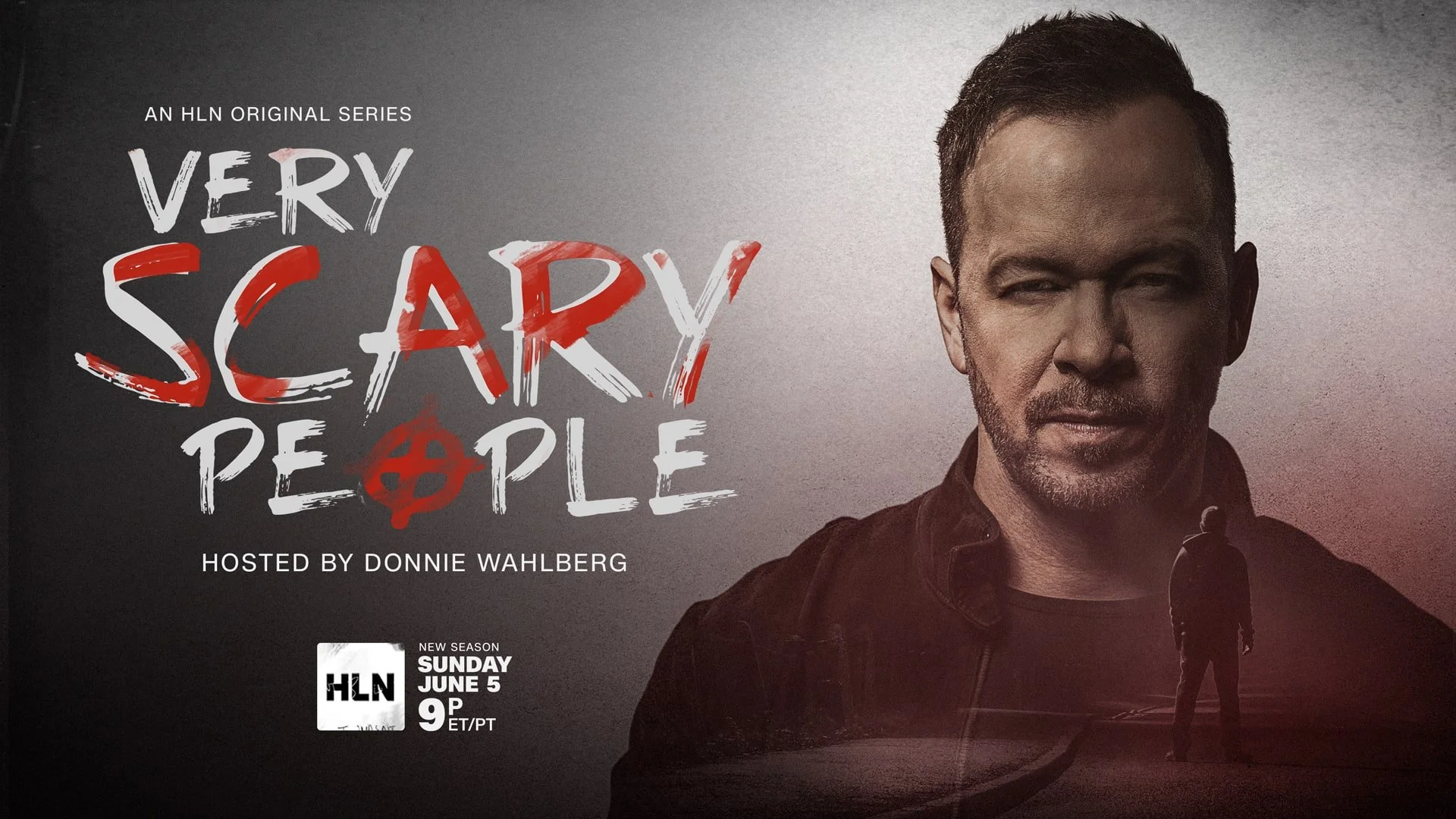L.A. Not So Confidential: Interview with Dr. Shiloh and Dr. Scott
L.A. Not So Confidential is a not so typical true crime podcast. The hosts, Los Angeles-based psychologists Dr. Shiloh and Dr. Scott, examine cases through the lens of forensic psychology and offer their hot takes on all things crime with a little snark and a whole lot of criminal justice expertise. When the show started back in October of 2017, the podcasting duo had just switched vocational gears to become law enforcement psychologists— now, they're seasoned veterans in the realm of crisis response and negotiation. Dr. Shiloh and Dr. Scott sat down with me to chat about the potential psychological impacts of COVID-19, their fool-proof research process and their favorite episodes of the show.
Elena Hollemon: How was your work impacted by COVID-19 and what steps are you taking to navigate any shifts that might have occurred?
Dr. Shiloh: For me, and actually both of us in the long run, not much has changed for us. I directly serve the employees of a police department, so their jobs certainly didn’t stop. The stress and mental health challenges were certainly through the roof, so it was actually time to step it up if anything. We took precautions with telehealth, and my case load went up astronomically. There are still some work from home days, but it’s not like the actual job has changed in terms of what’s asked of me. I was still going on SWAT calls to do crisis negotiation.Dr. Scott: Mine was almost exactly the same. I partner with law enforcement to address the needs of the chronically mentally ill in the community or escalating events that could turn into something more dangerous. I give such credit to our IT department who, within two months, had moved everything to online platforms in this unbelievable way that is so impressive to me. Clinics around the county were able to provide even more services to people that needed mental health services without needing transportation.Shiloh: Los Angeles was hit really hard financially, I mean I was looking at getting laid off. Think of all the travel and income that comes into the city, not to mention that sort of colliding at the same time with the “defund the police” movement. It was scary for a while, and we actually took some furlough days, so we got some days off of work but they weren't paid. I’ll take that so everyone can keep their job rather than lay-offs, but that was a real part of something that we were facing as government workers.
EH: From a psychologist’s point of view, how do you think the collective trauma of COVID-19 will impact our society moving forward? Do you think that this trauma will influence crime (if it hasn’t already)?
Shiloh: I don’t know how long it’ll take to see the real impacts and what the fallout is going to be from the trauma because there’s just so many facets to think about. I mean, even just the delayed grief that people are feeling for loved one’s that they’ve lost. The mortuaries are so backed up that funerals can’t even take place. So that’s just one offshoot of how people’s mental health will be impacted. Then you think about socialization with kids, getting back into school and what that’s going to look like. How much of a ripple is this going to be in their development? We’ve never seen anything like it before, so we have to kind of wait for it to happen and then the research starts and then we can start saying, “okay, here’s what’s going on and here’s how we can start addressing it.”Scott: As far as crime, here’s what I’ll say. People get referred to me generally because there is the potential for or there’s actually a crime involved in their behavior. And what I noticed over this year— and this is not scientific at all, this is completely anecdotal— is that in the first three months, people who have been mentally ill in the community and getting treatment for a while had an uptick in incidence. But then they settled in and they adjusted to the new normal really well. And then we had an uptick in kids being at home and the initial conflicts shifting from the school environment to the home environment and parents being stressed out. All through this year, we’ve seen different waves of individuals and what has been most disturbing in the last three months is the literal fraying of people who really don’t have significant mental health backgrounds at all. We’re seeing a lot of divorces and separations.
EH: Tell me about your research process for your podcast! How do you two decide what topics you’re going to cover and how do you split up and approach the research?
Shiloh: Our topics come from a lot of different places, and we are good at going with the flow. Honestly, we just have a running list of things that we’re super interested in and that is the whole idea behind the creative outlet of this podcast. Once we decide on a topic, one of us will “take the lead” and start a Google Doc and maybe do a little outline and then say “hey, do you want to take this part?” or “hey, I’ve already done this research.” That’s where the collaborative work happens from afar. Now it’s like we’re one mind basically as far as reading who’s going to go when and how we’re going to structure it. We always try to have the same formula where there is a psychological concept, there is a true crime case that we can talk about that has that involved in it, and then, if we can find it, some sort of depiction in a movie or a television show or even a documentary that folks are interested in.Scott: We really make an effort to have extensive show notes so we are pulling from all sorts of media. We’re pulling from interviews, newspapers both current and going back to the turn of the century or the turn of the last century, and valid research papers. Because of the positions that we both have in our current day time jobs, we have to be really careful about our commentary about something that is currently being adjudicated.
EH: Since starting this podcast in 2017, are there things that you have learned about forensic psychology that you didn't know before or is there any information that has changed your worldview?
Scott: I would say yes. Part of the things that we talk about that is required of us is staying on top of the latest research and that’s really hard because the half-life of research in the field of psychology is very short. I am more challenged than ever in starting this [podcast] in a way that was not expected. As someone who works in the realm of human behavior, I am probably more profoundly confused about the drives of why people commit some of the crimes that we talk about. Even though I have more clarity in certain areas than I did a decade ago, there are certain cases that still haunt me.Shiloh: I always say, if I could stay in school forever I would. This feels like Scott and I are constantly challenging ourselves to learn more on our own, and I have found that what’s been a real byproduct of the podcast is how it has merged in weird ways with our regular work.
Elena: Are there any topics that you might want to revisit on the show? Or, are there any topics that you feel may require further research and coverage given recent social and political events in our country?
Shiloh: We did [last May] the episode on QAnon and look where that has come, right? I don’t know if we would do another episode but I can tell you that there have been other ways that we have touched on it. We have so many platforms, even with just social media we can put out new articles for people so they can read if they want. In our GetVokl livestreams, we have touched on it many times. That is definitely a platform where we can be a little more in the moment and go off of what’s happening in real time in a more casual setting where we don’t have to do eight hours of research. It feels more conversational with the folks who show up to that.
Elena: What are some of your favorite episodes that you have done?
Scott: It changes all the time but really one of my favorite ones— because it’s just so out there and is so bananas— is folie à deux. We talked about several cases of individuals who have this diagnosis of shared psychosis or shared hysteria. That’s the one that really kind of chills me because our mind is our control center and the idea of losing control of everything that this executive functioning takes care of is fascinating and frightening to me.Shiloh: It’s hard for me to pick, but I think the ones that revolve around sex crimes tend to be my favorites to do because that’s my wheelhouse— I feel very confident doing those episodes and staying up on the research for those. We did an entire series on internet perpetrated sex crimes that was great, I felt like I was back teaching my interns again with all of this material that we had. If I had to pick one, it would lead me back to the Anthony Sowell case which is the Cleveland Strangler. That to me felt like a hallmark episode of explaining how risk assessment works and how we are not good at predicting human behavior, but we do the best we can with the tools and the research that we have.You can check out L.A. Not So Confidential wherever you listen to podcasts or you can join their Patreon and become a "Not-so Confidant" for five dollars a month. To keep up to date with everything that Dr. Shiloh and Dr. Scott are up to, you can also follow the L.A. Not So Confidential Instagram, Twitter and Facebook pages.






